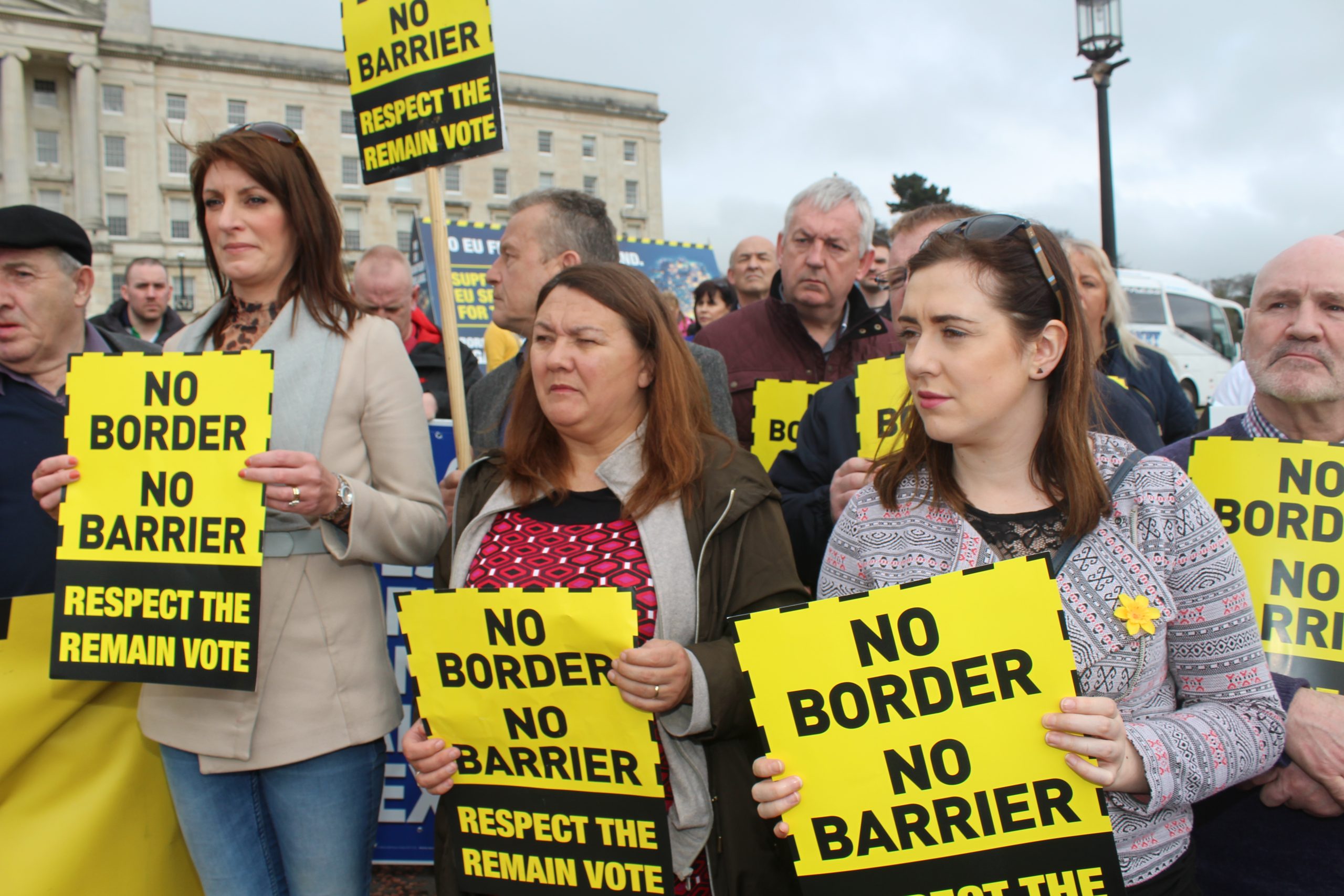The backstop and the issues surrounding the Northern Ireland border have long been at the nub of the failure to reach a Brexit deal. Since taking office, the Prime Minister has reiterated time and time that the backstop must go. In response, the EU and the Irish government have been urging the UK government to put forward legally operable backstop alternatives. This morning, the latest proposals contained within the UK’s non-papers, received a frosty reception from all parties in Ireland.
UK Non-Papers – Details on Backstop Alternatives
Throughout the Brexit negotiations, the EU, Ireland and the UK have emphasized the importance of maintaining an open border between the Republic of Ireland and the North of Ireland. In the context of the Good Friday Agreement, the negotiating partners have vowed to keep the border open. Moreover, they agreed not to erect a border infrastructure. During the Northern Ireland conflict, border posts were highly contentious. Thus, a return to maintaining a border is entirely unacceptable to most people north and south.
When Theresa May was at the helm, the backstop emerged as a solution. It sees Northern Ireland closely aligned with the Republic. However, the DUP alongside Brexiteers and some Tory MPs voted against May’s deal because of the backstop. They see it as tying the UK into an open-ended alliance and consider it undemocratic. Since then, the EU has been asking the UK to propose legally binding and operable alternatives.
This morning, details of the UK’s proposals emerged as part of the non-papers, the informal proposals that could pave the way to an agreement. As an alternative to the backstop, the UK proposes the establishment of custom posts away from the border.
On Twitter, the Minister for Foreign Affairs of Ireland, Simon Coveney, said:
Non-Paper = Non-Starter. Time the EU had a serious proposal from the UK Govt if a #Brexit deal is to be achievable in October. NI and IRE deserves better!
His sentiments come to echo comments from all political parties across the Irish Republic. Unlike in the UK, all political parties have collaborated in their approach to Brexit. Even the most staunch opponents have sought consensus to tackle any negative Brexit-impact on the Republic of Ireland.
The Northern Ireland Border – What’s the Big Deal?
Why is keeping the Northern Ireland border open so important? During the conflict, border posts became a target for paramilitaries. When the authorities removed all border infrastructure after the signing of the Good Friday Agreement, people living along the border saw normality return to their region. The Police Service of Northern Ireland and Irish authorities fear a reemergence of paramilitary activity if new border checks emerge. What’s more, erecting such posts would be contrary to the Good Friday Agreement. People north and south endorsed the GFA overwhelmingly in a vote.
The former Irish prime minister, Bertie Ahern, who was instrumental in the peace process reacted with similar sentiments, saying that Borish Johnson and his advisers knew these proposals would “not be a runner.”
Meanwhile, Angela McGowan, the umbrella UK business group’s Northern Ireland Director, said: “smacks to me that they [The British Government] don’t want to be taken seriously, they are perhaps not looking to get a deal if they are putting this on the table at this stage”.




